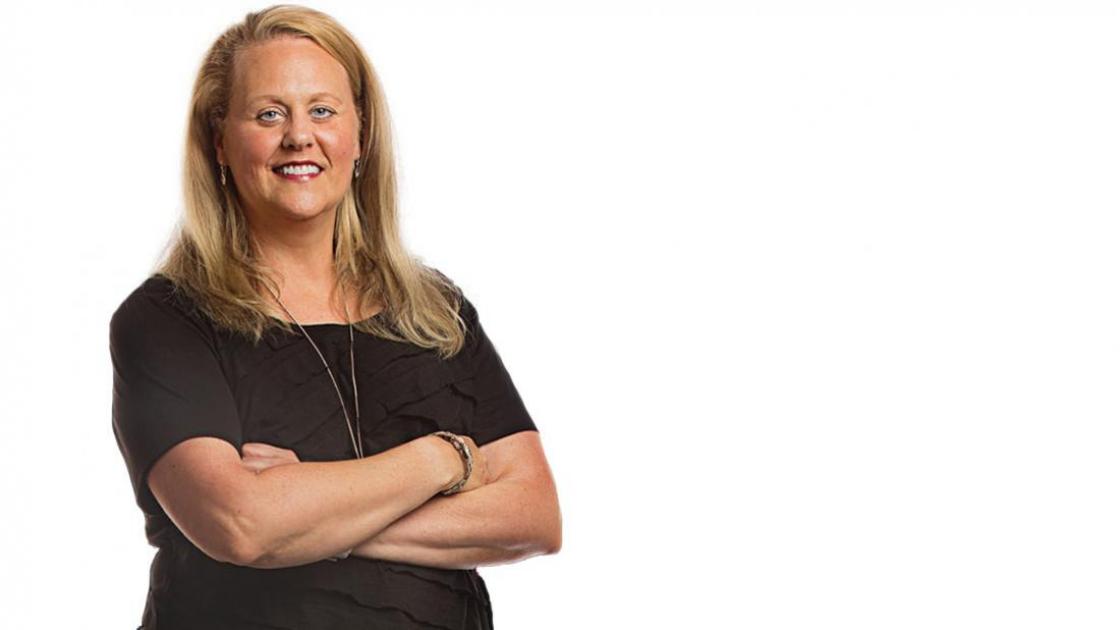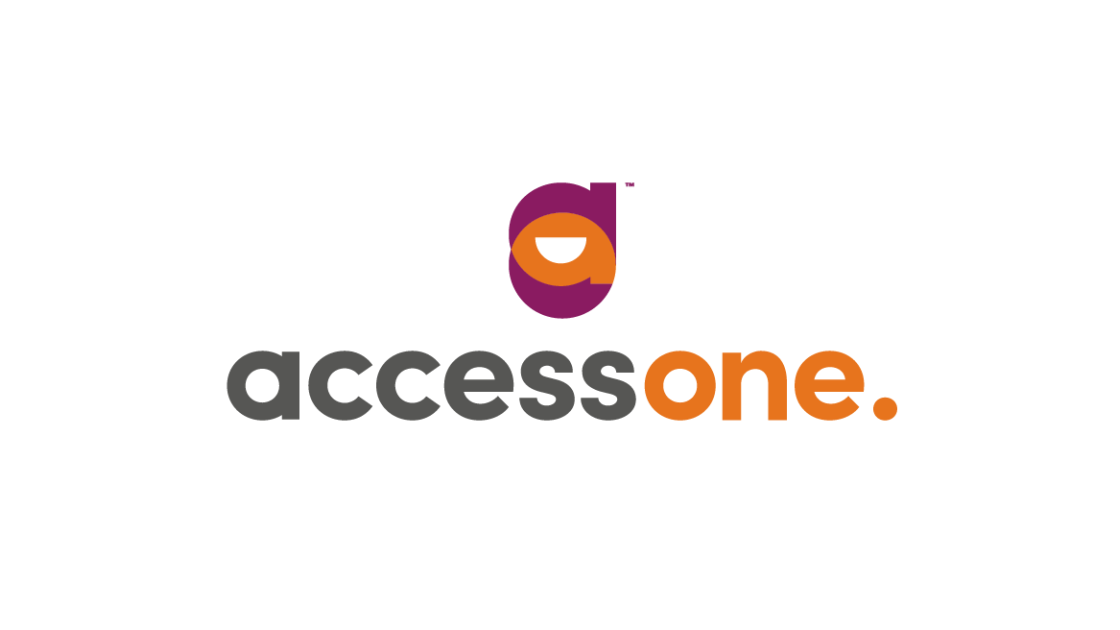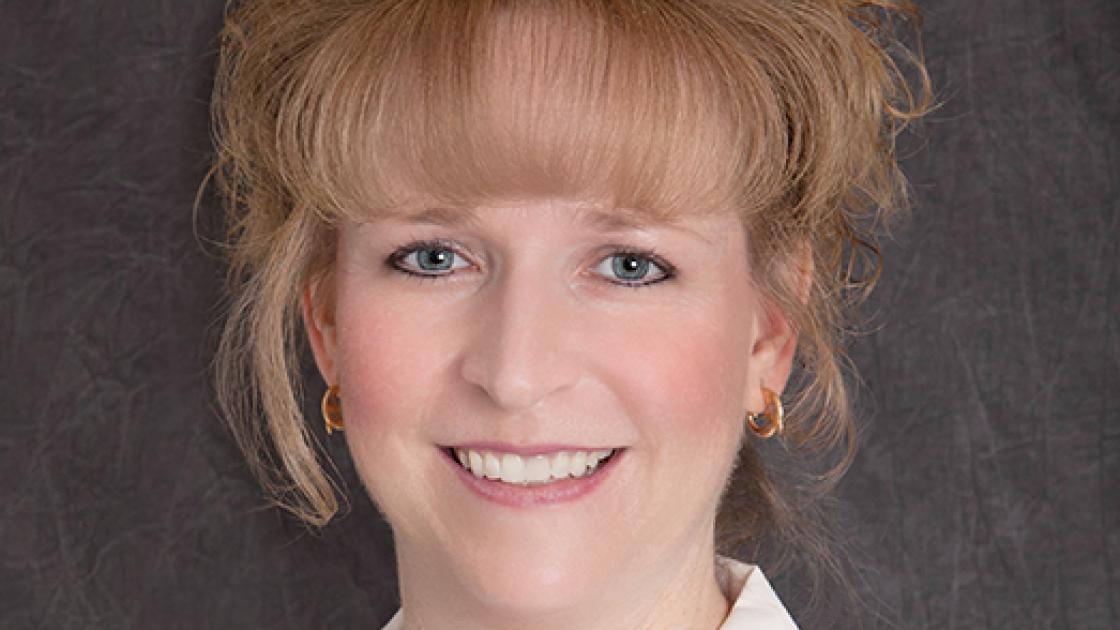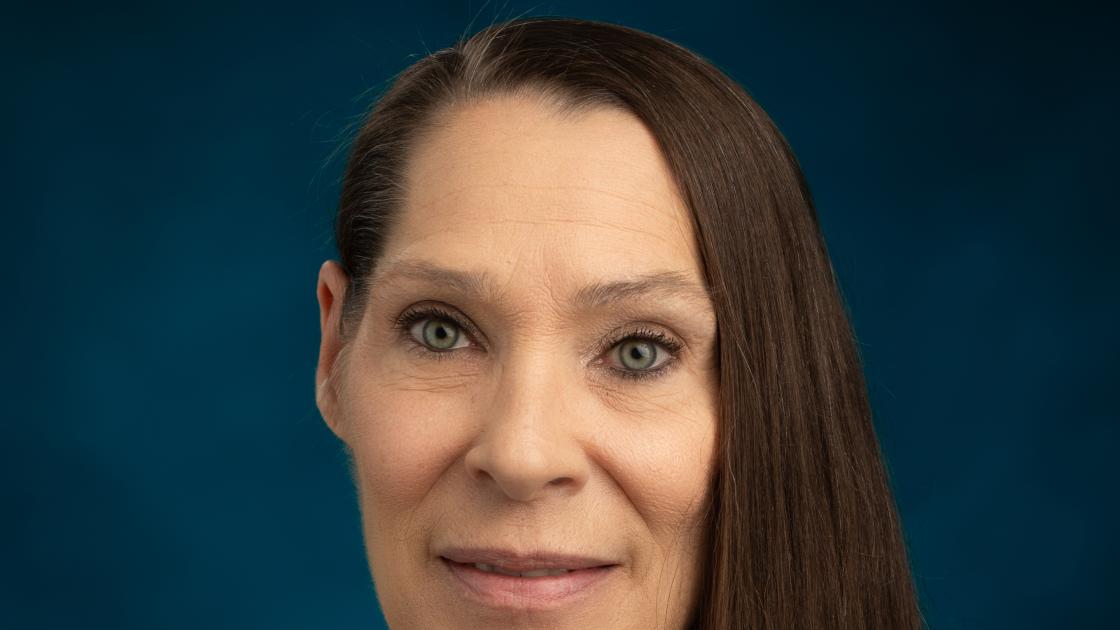
Dr. Sandra Ettema: Doctor, patient, leader, teammate
“I encourage everybody. I don’t care who you are, I don’t care what letters you have behind your name—if you’re interested in learning about what I’m doing, I will teach you.” It’s that sort of egalitarian attitude that’s immediately striking about Sandra Ettema, who, despite not caring about the letters behind your name, has an alphabet behind hers: Sandra Ettema, MD, PhD, CCC/SLP.
“Teaching my team and having them teach me is better overall for everybody,” says Dr. Ettema, an assistant professor in the Department of Surgery who specializes in laryngology. “I want it to be more of a group effort. Nobody’s higher or lower on the totem pole; everybody works the same, and it really provides the best treatment for the patient.”
Dr. Ettema’s love of teaching and her appreciation for her team grew from her early experiences as a college student and speech pathologist.
As an eager sophomore at the University of Illinois in Urbana-Champaign, she quickly found her calling. “I took Speech and Hearing Science 101, and the instructor was extremely dynamic, just amazing,” Dr. Ettema recalls. The instructor, Dr. Joan Good Erickson, crafted a plan that would take young Sandra through her bachelor’s and master’s degrees and into the Medical Scholars Program at the University of Illinois, where she would then obtain her MD/PhD in speech and hearing sciences.
“She handed me my life plan,” says Dr. Ettema, who took night classes at Parkland Community College during graduate school to prepare for the MCAT. Once she earned her master’s degree, she worked for two years as a speech language pathologist in Las Vegas to earn her certificate of clinical competence (CCC), after which she did her fellowship in laryngology at SIU School of Medicine, joining the school’s faculty in 2008.
Her breadth of experience has offered Dr. Ettema a rare and unique insight into the daily life of an allied health care team: nurses, physical therapists, occupational therapists, speech therapists, registered dietitians and social workers.
“The allied health care team sees the patient once, twice or three times a week so they can see the progress,” says Dr. Ettema. “Just working together is what really benefits the patient the most; it’s a very good dynamic.”
Working closely with her team of nurses and therapists has also given Dr. Ettema an added opportunity to mentor and pay it forward.
“My mentors pushed me forward, so that’s what I feel like I should do as well.”
The doctor becomes the patient
Dr. Ettema has the unique ability to simplify complex medical jargon in a way patients can appreciate. The Streator, Ill., native credits her own medical history for that. In 2010, she learned she had breast cancer.
“Being on the other side as a breast cancer patient really opened me up to the importance of answering questions and waiting—waiting in a tiny office, just with a gown on and being completely naked underneath, sitting sometimes for well over an hour,” she says. "It’s good that your doctor has been a patient, I think, so that we remember what that medicine feels like when it goes in and it burns, and what it’s like to have a drain and rip tape off an IV. It’s not comfortable. And then you appreciate what everybody does. As a patient, you really need to be a self-advocate, but you also need everybody working together to get all the information.”
As a seemingly healthy 39-year-old, Dr. Ettema was unprepared for the injections, medications and side effects that accompanied cancer. “When they told me I had breast cancer, I heard cancer and that was it. I didn’t hear anything else after that.”
And while she knew she was BRCA-positive, she didn’t know what that would mean for her and her family. In the mid-1990s, a cousin urged Dr. Ettema’s family to test for the genetic mutation. The advice proved life-saving: Dr. Ettema and her sister were diagnosed only a month apart, and, six years later, her father learned he, too, had breast cancer. Dr. Ettema’s remaining three siblings have taken precautionary measures after finding they are also positive for the BRCA mutation. Her older sister underwent a prophylactic mastectomy and bilateral oophorectomy (removal of the ovaries) and her younger brothers undergo regular mammograms and prostate exams.
“It’s amazing how many physicians don’t know about BRCA and how it can affect men,” says Dr. Ettema, who called and sent information to each of her siblings’ physicians about the gene. “Being BRCA-positive isn’t just your sister, your mother, your aunt; it’s your dad, your brother, your uncle, too.”
“Life’s too short.”
Taking on challenges and opportunities to learn has been a theme throughout Dr. Ettema’s life. Shortly after Dr. Ettema was diagnosed with breast cancer, she and her husband, Steven Everitt, moved to Galesburg, Ill., where she joined a private practice. “When I developed breast cancer, I just had this ‘life’s too short’ kind of thing. I just felt like I needed some time with myself and my husband,” she explains. She set up an allergy clinic and an audiology and hearing aid program. But after about two years, she was again ready to get back to a part of medicine she really loves.
“I loved being out in the private practice, but I was so busy with the clinic that I wasn’t reading or keeping up on the new research and journal articles,” she explains. “I wasn’t learning, and I really missed teaching.” A chance meeting with SIU Medicine’s Carol Bauer, MD, chair of the Division of Otolaryngology, brought Dr. Ettema back home to SIU.
Today, her goal is to prepare patients for the unexpected. She schedules follow-ups with newly diagnosed patients to educate them about treatment options and long-term side effects using models and diagrams.
“I explain, ‘You might need a feeding tube during your treatment.’ Even if they don’t need it, at least they heard the words ‘feeding tube’ beforehand and what that might mean for their future. We need to tell people what they’re in for.”
A full-service approach
Patients seem to appreciate the sentiment and her proactive approach, even if it means appointments take a little extra time. “I want to treat everything when you’re there. So if you come to me for a hoarseness problem, and I look in your ears and your ears are full of wax, I’m not going to let you leave my office without cleaning your ears,” Dr. Ettema says with a grin. “It’s like a car wash. You don’t go through a car wash and not clean the wheels.”
Part of her full-service approach is providing patients with the peace of mind Dr. Ettema valued most as a patient. After receiving a patient’s biopsy results on Saturday night, she called the anxious family early Mother’s Day morning. The grateful family sent flowers the following week. “I knew what I felt like waiting for the call,” Dr. Ettema shares, as tears begin to well. “You’re just sitting there worrying, worrying, worrying. Receiving the diagnosis starts the process of healing. If you do have cancer, you can move to the next step.”
This article was originally published in Aspects Magazine, Summer 2017 40-3.



